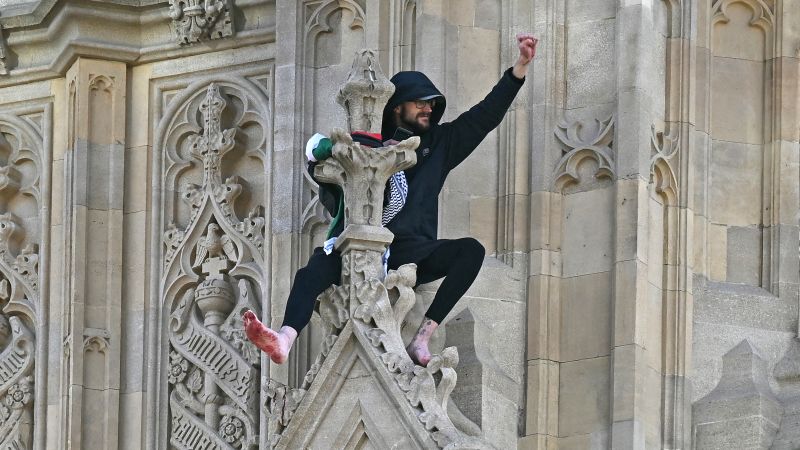Lynch: Good riddance to a year when PGA Tour players flexed their muscles to fans’ dismay

Tour players flexed their muscles in 2024 while golf fans had to pound sand
At last, 374 years after Dutch settlers played the New World’s first recorded “kolf” in upstate New York, the sport can no longer be airily dismissed as unrepresentative of America. Forget those old familiar sideswipes about being too monochromatic, too elitist, too cloistered. In 2024, golf is the game that most reflects the state of the nation — with immense power concentrated in the hands of a wealthy few and wielded for largely selfish ends.
It’s been a year in which players have been busy exercising the control they snatched back in the bitter aftermath of the June 2023 Framework Agreement with the Saudis, on which they were not consulted. They secured ownership equity grants, increased purses and Ryder Cup pay, with no commensurate increase in obligations. In the boardroom, they constructed a super majority, ousted independent directors, took on private investors to further slake their financial thirst, limited the number of snouts with whom they must share the trough, and announced a new CEO role that will clearly diminish the authority of their commissioner.
In an era when every year seems to bring seismic change, ’24 ought to be remembered as the most transformative in the Tour’s history. *
* 2025 pending, of course.
Obviously, those flexes have been by and for elite stars. The rest of the membership has learned how little leverage it possesses. No wonder that even corners of the locker room prone to fretting about Newsmax being too liberal are starting to sound more like a Bernie Sanders rally.
As power plays go, it has been brutally effective. Compare it to Jon Rahm’s move a year ago, when he jumped to LIV Golf in the pompous belief that he’d be a catalyst, that his shocked peers would hasten to the negotiating table to secure his return to a unified game. Instead, it delayed any resolution by hardening sentiment against providing a path back for those who left to line their pockets. Regardless of the guff Phil Mickelson peddles, the PGA Tour was reshaped by those who remained, not those who left to launch a comically worthless enterprise that will need to be salvaged under duress by their former colleagues.
For all the public and private politicking by players, the most significant day of 2024 came early. On Jan. 31, the Tour announced Strategic Sports Group had invested $1.5 billion into a new for-profit vehicle, PGA Tour Enterprises, with the promise of another billion-five to follow. Whether intended as a hedge against the Saudi threat or to dilute an eventual cash infusion from the Kingdom, it marked a fundamental shift in how the Tour operates, and for whom. Only now are we beginning to see how the impact of that investment will manifest — in budget efficiencies at headquarters, in executive exits, in the elimination of tournaments, in the narrowing of player eligibility, in ambitious acquisitions, in a more global presence. All for something the Tour had never previously concerned itself with: a return on investment.
It seems ordained that we’ll eventually reach a moment when we’ll see who flexes a more powerful bicep, the players or their investors.
Against this backdrop, ’24 made clear that consumers of professional golf have been drifting away, weary of being so obviously treated as an afterthought. Broadcast ratings were consistently down, even on Masters Sunday, the once unbreachable fortress of golf television. The recent Showdown in Las Vegas drew viewership that was enormous for the LIV guys who participated but Lilliputian compared to what their opponents are accustomed to. It was evidence that meaningless, manufactured competition won’t cut it. Too many players and executives are relying on the notion that fans alienated by the entitled money-grubbing will flock back when the entitled money-grubbers are gathered under one roof again. That is looking dangerously close to a convenient delusion. The damage might be long-term, if not permanent. Golf’s most powerful constituency remains its consumer fanbase, and 2025 will go some way toward showing if they’ll keep voting ‘No’ with their remote controls.
As this year staggers to a welcome close, we can at least draw comfort from the example of Scottie Scheffler, who showed what’s possible when a golfer focuses on his job rather than on politics, posturing or pay. And from the tragic lesson of Grayson Murray, who proved that golf isn’t life, that money doesn’t matter, that wins are ephemeral, and that what we think we see isn’t always so. As we enter ’25, normalcy seems as distant as it did a year ago and the power plays are far from exhausted. Fans had best get comfortable with being uncomfortable.
Related
5 Things I Never Play Golf Without: David Dusek
Our 11-handicap equipment writer always brings his favorite divot repair tool, a portable speaker and some high-tech gear to the course.As long as the weather i
Donald Trump’s golf course wrecked by pro-Palestine protesters
Pro-Palestinian protesters have vandalized parts of U.S. President Donald Trump's golf course in Scotland in response to his proposal for the reconstruction of
Man holding Palestinian flag scales London’s Big Ben hours after…
CNN — Emergency services were called to London’s Palace of Westminster on Saturday a
EPD: Drunk driver parked car on golf course
EVANSVILLE, Ind. (WFIE) - Evansville police say they arrested a man after finding him drunk in his car that was parked on a golf course.Officers say they were c











